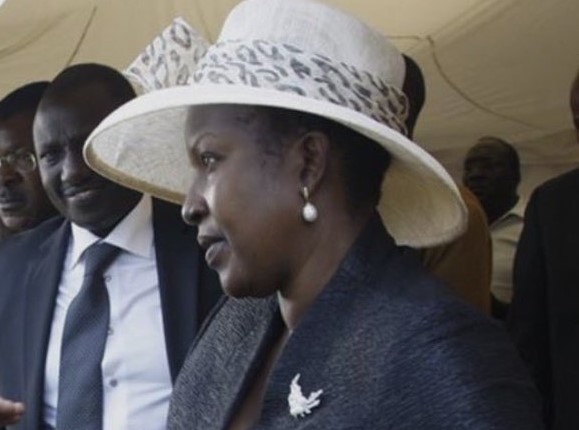Years back, critics opined that Kenya’s film industry was too ‘rigid’ and ‘flat’ and that it needed to ‘wake up’ if it were to get global recognition.
Opinions and criticism were thrown at anybody who was associated with the industry — from producers, scriptwriters, directors, to policy and lawmakers in film.
The comparison between Kenya’s film industry to Nigeria and South Africa’s was loud. A local publication was quoted as saying, “Film industry in Kenya is neither dead nor thriving. It has been nascent for a long time with spikes of creativity, both from local and international productions. But most of the time it just coasts along”.
There were concerns by scholars as to why the film industry had stagnated in Kenya, while it flourished in other African countries such as Nigeria and South Africa. This despite the fact that Kenya was among the first countries in Africa where films were shot on a regular basis.
Fast forward to now, the narrative has completely changed. Kenya’s film industry is growing at a commendable pace. Local films are receiving international recognition and creators are rubbing shoulders with big names on the global film stage.
This growth has been captured in the Unesco 2021 report, The Africa Film Industry: Trends, Challenges and Opportunities for Growth, noting that Kenya has distinguished itself as a centre for excellence in documentary filmmaking in Africa.
The report further revealed that an average of 100 foreign films or commercial shoots take place every year in Kenya. This has established Kenya as an international filming destination and created employment opportunities for local filmmakers. Various production companies have been formed to service foreign shoots, such as Blue Sky Films EPZ, Film Studios, Pontact Productions among others.
The economic impact of the film industry has equally been significant. According to the Kenya National Bureau of Statistics 2019 economic survey, the Kenyan film industry directly employed 129,824 people in 2019, or about 4.5 per cent of the country’s total employed workforce. Out of those, practitioners estimate 30 to 40 per cent are women. In 2019, the Kenyan film and audiovisual sector contributed an estimated $110,758,056 to the country’s GDP.
The commitment, hard work and extra effort put by Kenyan creators and the government in the past few years is finally producing results. Film makers are going out of their way to ensure they are not just creating content for local consumption but doing so for an international audience in line with international standards. There has been significant improvement in the quality of equipment being used and thematic topics that can be consumed by both local and international audiences.
The vitality of Kenyan films has also been driven by widespread use of digital and new technologies, the affordability of digital film equipment, the rise of online platforms, stakeholder participation and support systems put in place by policy makers.
The Kenya Film Commission has been at the forefront in ensuring the film industry remains steadfast. The goal is to ensure the Kenyan flag flies high on the global film stage.
Issues have been raised concerning immediate support given to film makers by the government. Among the key challenges pointed out are lack of infrastructure and skill development programmes, financing, equipment provision, promotion and marketing platforms.
To address these concerns, the Commission has invested heavily in technology through its e-Film shop, and has also formed strategic partnerships geared towards promotion and growth of the sector.
KFC’s Film Empowerment Programme provides film and video-related funding in the broad categories of Development Funding (of feature films, documentaries and TV concepts); Production Funding (of feature films and documentaries), Marketing and distribution Funding, Emerging filmmakers Funding. In 2021, the Commission disbursed Sh30 million, which funded 14 locally produced films.
Additionally, the Commission undertakes capacity building programmes focusing on strengthening the local film makers' professional skills and equipping them with information and skills. This enables them to compete effectively in the local and international film environments. KFC is also rolling out fully equipped film resources centres across the country to power storytelling at the grassroots level.
Slowly but steadily, the Commission is pushing to create a screening culture in the country which collapsed after the Covid-19 pandemic. The idea is to appreciate content creators wholesomely and to make available and push for more consumption of local content.
The use of innovative technologies and tools such as the mobile phone to tell our audio-visual tales is additionally widening the scope of film-making in the country. This has been seen in the Commission’s annual programme dubbed ‘My Kenya My Story’ mobile phone film competition.
The recent signing of the co-production treaty between Kenya and South Africa is expected to significantly benefit the industry allowing for access to the financial and human resources of the production companies in both countries while being able to share the financial benefits in each of the home countries and an increased potential viewership through distribution.
To keep the industry motivated, KFC recognizes and celebrates exceptional talent in the film and TV industry in Kenya through the annual Kalasha Awards. It has been 12 years since the inception of these inaugural awards.
The 12th Edition, which will be held on December 3 will see the addition of nine new categories that include; best regional film, best short documentary, best feature documentary, best makeup and hair stylist, best costume designer, best supporting actor in TV drama, best supporting actress in TV drama, best viewer’s choice (feature) and best viewer’s choice (TV drama).
KFC calls upon industry stakeholders to jump on the bandwagon and help position Kenya as a global hub for film production and market it as a preferred filming destination for wealth and job creation.
The writer is the CEO, Kenya Film Commission












